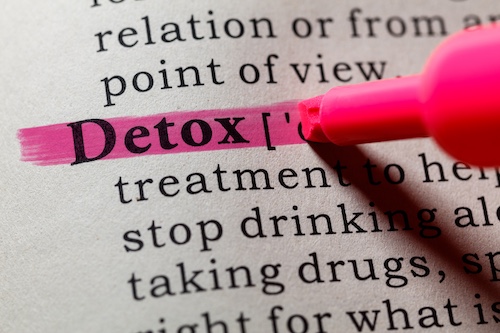Alcohol Detox: The First Step to Lasting Recovery
Alcohol detox is the first step to stop drinking and begin recovery. It helps people manage alcohol withdrawal symptoms safely and lays the foundation for long-term treatment. At Carolina Recovery in Raleigh, our alcohol rehab center provides medical supervision and support to reduce withdrawal symptoms and prevent complications. Detox is the start of a new chapter in recovery, where people can find hope and health again.
In this blog, we cover what to expect during alcohol detox, why medical supervision is important, and how visiting our Raleigh alcohol rehab center can help you or your loved one take the first step to lasting recovery.
Understanding Alcohol Detox
Alcohol detox is the first step to address alcohol dependence. It involves stopping alcohol use while managing alcohol withdrawal symptoms in a safe setting.
What is Alcohol Detoxification?
Alcohol detoxification is a medical process that helps the body clear alcohol. This process is important for treating alcohol use disorder. It allows the body to begin recovery without severe complications. Carolina Recovery in Raleigh uses medical intervention to manage detox and ease withdrawal symptoms.
Why is Alcohol Detox Important?
Stopping alcohol use after heavy drinking can cause withdrawal symptoms. These symptoms can range from mild to severe. Severe alcohol withdrawal can include seizures and delirium tremens. Medical professionals at Carolina Recovery monitor these symptoms to prevent life-threatening issues.
What Happens During Alcohol Detox?
The detox process starts with an assessment of drinking patterns, medical history, and physical health. Blood pressure and other vital signs are checked often. Medications can help reduce alcohol withdrawal symptoms and support the central nervous system. Carolina Recovery’s alcohol rehab center in Raleigh uses proven methods to treat severe and mild withdrawal symptoms.
How Long Does Alcohol Detox Take?
The length of alcohol detox depends on several factors. These factors include how much alcohol the person has been drinking and their overall health. Most people start feeling withdrawal symptoms within hours of their last drink. Carolina Recovery professionals help reduce withdrawal symptoms and keep the process as safe as possible.
Risks of Alcohol Detox Without Medical Help
Quitting alcohol “cold turkey” can cause serious complications. Alcohol withdrawal syndrome can be severe. Carolina Recovery’s treatment program helps prevent seizures and delirium tremens. With medical care, patients have a better chance of quitting alcohol safely.
The Alcohol Detox Process at Carolina Recovery
The alcohol detox process at Carolina Recovery helps people safely stop drinking while reducing alcohol withdrawal symptoms.
Initial Assessment and Intake
The detox process begins with a full medical assessment. Our healthcare professionals gather information about drinking patterns, medical history, and other substances used. This helps us create a safe treatment program that reduces alcohol withdrawal symptoms and addresses alcohol dependence.
Medical Monitoring and Supervision
During detox, we monitor each patient’s blood pressure, heart rate, and other vital signs. Our treatment professionals in Raleigh provide 24-hour care to ensure safety. Medical intervention can ease withdrawal symptoms and help manage severe alcohol withdrawal.
Pharmacological Management
Medications are used to help reduce withdrawal symptoms. These may include drugs that calm the central nervous system and prevent severe alcohol withdrawal symptoms like seizures. Pharmacological management supports the body and makes the detox process safer.
Ongoing Support and Care
Carolina Recovery’s alcohol rehab center in Raleigh offers continuous support during detox. Our team helps manage mild and severe alcohol withdrawal symptoms. We ensure patients have a safe place to begin recovery. After detox, we provide treatment options to address alcohol use disorder and prevent relapse.
Alcohol Withdrawal Symptoms: What to Expect
Alcohol withdrawal symptoms can range from mild discomfort to severe, life-threatening complications.
Mild Alcohol Withdrawal Symptoms
Mild symptoms often begin within hours after the last drink. These include anxiety, irritability, sweating, and trouble sleeping. People may also experience nausea, vomiting, and headaches. Carolina Recovery’s Raleigh alcohol rehab center provides medical support to ease these symptoms and reduce discomfort.
Severe Alcohol Withdrawal Symptoms
Severe alcohol withdrawal can include hallucinations, confusion, and seizures. Delirium tremens is the most dangerous condition and requires immediate medical care. Carolina Recovery’s treatment professionals monitor for these symptoms to prevent serious complications.
Alcohol Withdrawal Timeline
The timeline for alcohol withdrawal varies. Mild symptoms usually start within six hours after the last drink. Severe alcohol withdrawal symptoms like seizures can begin within 12 to 48 hours. Delirium tremens may appear two to three days later. Medical care during this time is important to ensure safety.
Importance of Medical Help
Alcohol withdrawal can be dangerous without medical help. Carolina Recovery offers medical intervention to manage symptoms and reduce risks. Our Raleigh alcohol rehab center uses proven methods to prevent alcohol-related seizures and other serious reactions.
Why Medical Supervision is Essential
Medical supervision during alcohol detox reduces the risk of severe complications and improves safety.
Dangers of Quitting Alcohol Without Help
Stopping drinking alone can lead to serious complications. Alcohol withdrawal syndrome can cause seizures, delirium tremens, and severe reactions that threaten physical health. Carolina Recovery’s treatment professionals in Raleigh offer medical intervention to prevent these issues.
Role of Medications in Detox
Medications can reduce withdrawal symptoms and help the central nervous system. Drugs like naltrexone and disulfiram work to ease discomfort and support the body during detox. Medical supervision ensures that these medications are used safely and effectively.
Continuous Monitoring for Safety
Our Raleigh alcohol rehab center uses constant monitoring to check blood pressure, heart rate, and other vital signs. This helps prevent complications from severe alcohol withdrawal symptoms. Treatment professionals adjust care based on each person’s needs and medical history.
Benefits of Professional Help
Medical care during detox helps people stop drinking safely. It reduces the risk of alcohol withdrawal seizures and delirium tremens. Carolina Recovery provides professional help to manage symptoms, support recovery, and start treatment for alcohol use disorder.
After Detox: The Path to Long-Term Recovery
Completing alcohol detox is the first step in treating alcohol use disorder and preventing relapse. Continued treatment helps people rebuild their health and avoid returning to drinking.
The Importance of Continued Treatment
After detox, continued treatment is important for long-term recovery. Therapy and counseling help people learn new skills to stay sober. Carolina Recovery in Raleigh offers a treatment program that helps people find and keep their motivation to quit drinking. We provide the support needed to manage triggers and stress that can lead to relapse.
Managing Alcohol Dependence
Treatment professionals at Carolina Recovery help people understand why they drink. They teach ways to handle urges and build healthier coping habits. Therapy focuses on the causes of alcohol use disorder and how to avoid alcohol abuse. Medical care also addresses physical health and helps manage other medical conditions linked to drinking.
Preventing Relapse
Relapse is common in alcohol use disorder. Ongoing support helps prevent relapse by providing structure and accountability. At Carolina Recovery, our treatment program in Raleigh includes group therapy, individual counseling, and medication when needed. This care helps people stay focused and avoid alcohol.
Building a Healthier Life
Carolina Recovery helps people create new goals and routines. Treatment after detox is about more than stopping drinking. It also helps people build a stronger body and mind. We provide help with cravings, stress, and emotional health. Our Raleigh alcohol rehab center gives people the tools to avoid alcohol and start a new, sober life.
Seek Treatment & Healing With Carolina Recovery ASAP!
If you or someone you know is ready to stop drinking and begin recovery, contact our team at Carolina Recovery today. We offer safe, medically supervised alcohol detox and personalized care at our Raleigh alcohol rehab center. Our team is here to support you every step of the way, providing the tools and medical care you need to start a healthier, sober life.
Contact us at (812) 408-8842 to start your journey to wellness today!







